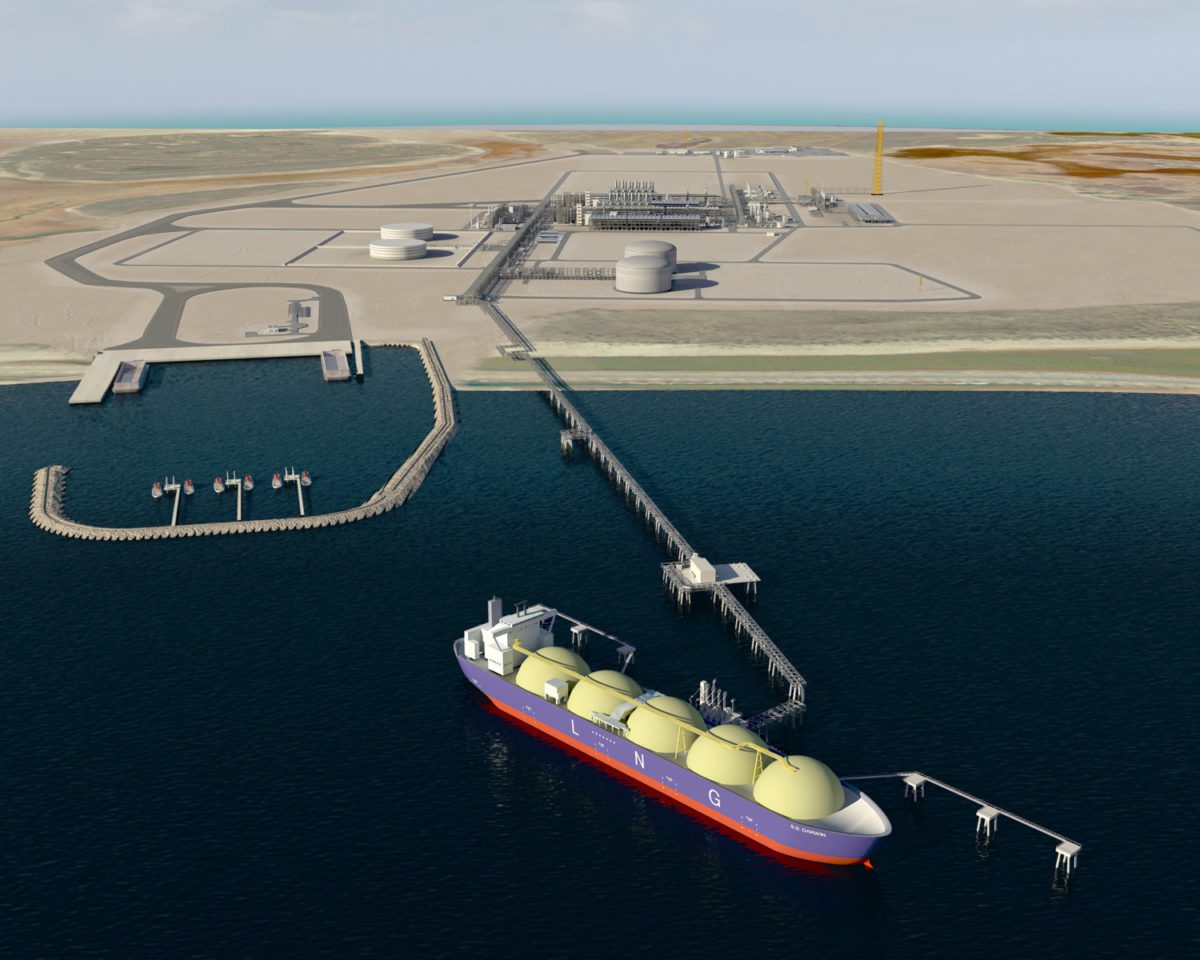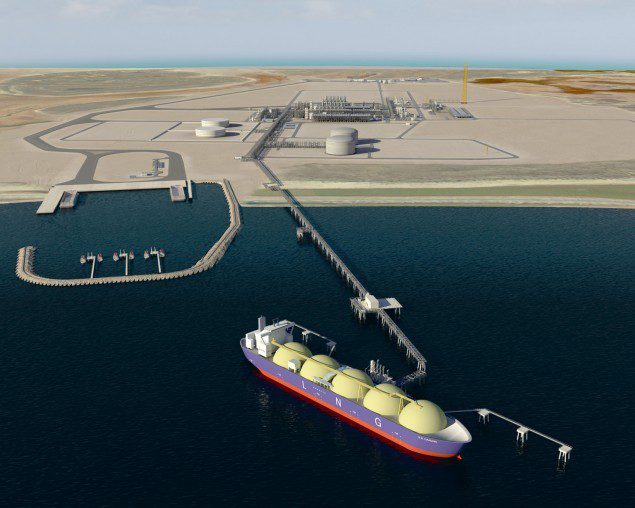MOL to Equip LR1 Tanker with Carbon Capture System
Mitsui O.S.K. Lines will equip its LR1 product tanker, Nexus Victoria, with the an onboard CO2 capture system. The installation will mark the first commercial installation of a CO2 capture...




SYDNEY–Chevron Corp. (CVX) and Royal Dutch Shell PLC (RDSB) agreed Monday to swap stakes in two multibillion dollar natural gas projects in Australia, betting on the country’s ability to feed Asia’s growing energy demand just as competition from Africa and North America intensifies.
Chevron, the second-biggest U.S. oil company by market value after Exxon Mobil Corp. (XOM), will transfer its 17.5% interest in the proposed US$30 billion-plus Browse export terminal in Western Australia state to Shell in exchange for the Anglo-Dutch company’s interest in two gas fields associated with the US$29 billion Wheatstone export terminal, plus US$450 million in cash.
Australia has emerged as a crucial plank in both company’s development strategies due to its political stability and proximity to fuel-hungry Asian buyers. With close to a dozen natural gas export terminals planned for its coastline, the country is poised to leapfrog Qatar as the world’s top exporter of liquefied natural gas by the end of the decade. LNG is natural gas chilled to a liquid so that it can be shipped by sea.
“I actually believe Asian demand is going to be so great that it can take probably all the gas that can be delivered,” Chevron Vice Chairman George Kirkland said in an interview.
The Wheatstone project will have an initial capacity of 8.9 million metric tons of LNG from two production units, or trains, but Chevron wants to increase this in stages to as high as 25 million tons. Mr. Kirkland said the deal with Shell enhances Chevron‘s ability to expand Wheatstone but declined to comment on when a final investment decision on a third train may be made. Chevron would still welcome nearby resource owners to process their gas through an expanded Wheatstone, he said.
The swap “might be read as slightly more beneficial to Chevron,” energy research firm Tudor Pickering Holt & Co. said in a note. The analysts added that the newly acquired land will give Chevron additional gas to expand its Wheatstone project at a later date, while it allows the company to get out of a field for which it had less strategic use. The extra half a billion in cash was icing on the cake, the analysts said.
The deal represents a bold move by Shell to get involved more heavily in Browse, a development led by Woodside Petroleum Ltd. (WPL.AU) that faces technical and environmental challenges before it can make its first shipments in 2017 as planned.
Shell’s Upstream International Director Andy Brown said the swap aligns with the company’s strategy of taking bigger stakes in key gas resources and helps simplify Browse’s ownership.
“We’re committed to continue working with Woodside, the other JV participants and key stakeholders to secure the best possible development plan for this important resource,” Mr. Brown said in a statement.
Located in the deep waters of the Browse Basin offshore northwestern Australia, the resource contains an estimated 15.5 trillion cubic feet of recoverable gas and additional volumes of condensate, a type of light oil.
But the gas has a high carbon dioxide content and will be technically challenging to extract. It’s also far offshore, requiring a long pipeline to be built to processing facilities on the coast.
Due to be built in a place marked with one of the world’s longest chain of dinosaur footprints, the development is facing opposition from environmental groups and has angered some traditional land owners. There has also been disunity among joint venture partners over the best way to process the gas for export, although this may ease now that Chevron is exiting the venture.
The project received a big boost in July when environmental regulators in Western Australia gave the construction of the project a green light if enough safeguards are put in place.
All of Australia’s LNG developments are likely to face rising competition from emerging gas-export industries in North America and Africa, which will make it tougher to secure customers.
Chevron is targeting an expansion of the 43 billion Australian dollar (US$45 billion) Gorgon LNG project in 2014, while four rival projects in Queensland state to be fed with gas trapped in coal seams have acquired land that could accommodate multiple LNG trains.
North America currently has no established gas-export industry but a plunge in domestic prices there, driven by the emergence of new drilling techniques that allow the extraction of gas from tight rock formations, has increased the appeal of export markets that can attract higher prices.
LNG from East Africa isn’t expected until 2018 at the earliest, but the scale of discoveries by companies including Anadarko Petroleum Corp. (APC) offshore Mozambique, Tanzania and Kenya has prompted talk of a new gas-export hub facing Asia.
Mr. Kirkland said Chevron has a competitive advantage because project expansions are easier to develop than new projects built from scratch. Australia is also well-positioned geographically to ship gas into Asia, he said.
– by Ross Kelly, (c) 2012 Dow Jones Newswires, Ben Lefebvre in Houston contributed to the article.
Join the gCaptain Club for curated content, insider opinions, and vibrant community discussions.


Join the 105,956 members that receive our newsletter.
Have a news tip? Let us know.
Access exclusive insights, engage in vibrant discussions, and gain perspectives from our CEO.
Sign Up




Maritime and offshore news trusted by our 105,956 members delivered daily straight to your inbox.



Essential news coupled with the finest maritime content sourced from across the globe.
Sign Up